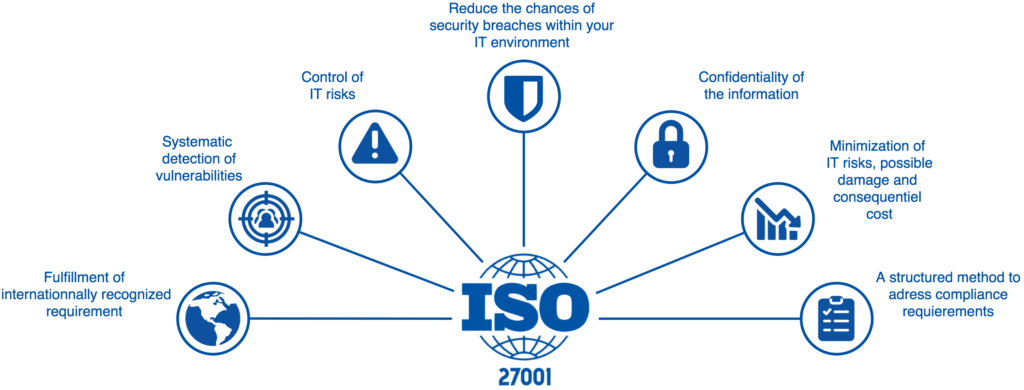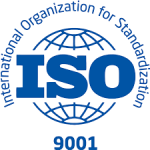In today’s technology-driven world, information security has become a crucial aspect of organizational operations. Data breaches, cyberattacks, and other security incidents can have serious consequences, including financial loss, damage to reputation, and legal liabilities. To address these risks, many organizations have turned to ISO 27001, a widely recognized international standard for information security management.

ISO 27001 is a framework that sets out the requirements for an information security management system (ISMS). An ISMS is a systematic approach to managing sensitive company information, including intellectual property, financial data, and personal data.
The standard provides a comprehensive set of controls that organizations can use to establish and maintain an effective ISMS. The ISO 27001 standard was first published in 2005, and it has since been revised several times to reflect the evolving nature of information security threats and technologies. It is maintained by the International Organization for Standardization (ISO) and the International Electro technical Commission (IEC), which work together to ensure that the standard remains relevant and up-to-date.
To achieve ISO 27001 certification, an organization must implement an ISMS that meets the requirements set out in the standard. The process typically involves a comprehensive risk assessment, development of policies and procedures, implementation of security controls, and ongoing monitoring and improvement of the system. Certification is awarded by an accredited certification body, following a rigorous audit of the organization’s ISMS.
There are several reasons why ISO 27001 is important for organizations:
Firstly, the standard provides a framework for managing information security risks in a systematic and structured manner. By implementing an ISMS, organizations can identify and prioritize their most critical information assets, and develop controls to protect them from threats.
Secondly, ISO 27001 certification provides assurance to customers and stakeholders that an organization takes information security seriously. It demonstrates that the organization has implemented a rigorous and effective ISMS, and that it is committed to continuously improving its security posture.
Thirdly, ISO 27001 can help organizations comply with regulatory requirements for information security. Many countries and industries have specific laws and regulations that govern the protection of personal data, financial information, and other sensitive data. ISO 27001 provides a framework that can help organizations meet these requirements, and demonstrate compliance to regulators and auditors.
Fourthly, ISO 27001 can help organizations avoid the financial and reputational costs of a security breach. By implementing effective security controls, organizations can reduce the likelihood of a breach occurring, and minimize the impact if one does occur. This can help to avoid costly lawsuits, fines, and damage to reputation that can arise from a serious security incident.
Finally, ISO 27001 provides a basis for continuous improvement of an organization’s information security practices. By regularly monitoring and reviewing the ISMS, organizations can identify areas for improvement, and implement changes to strengthen their security posture over time.
In conclusion, ISO 27001 is an important international standard for information security management. It provides a comprehensive framework for managing information security risks in a systematic and structured manner, and can help organizations comply with regulatory requirements, demonstrate their commitment to information security, and avoid the financial and reputational costs of a security breach. By implementing an ISMS that meets the requirements of ISO 27001, organizations can improve their security posture and protect their most critical information assets..

